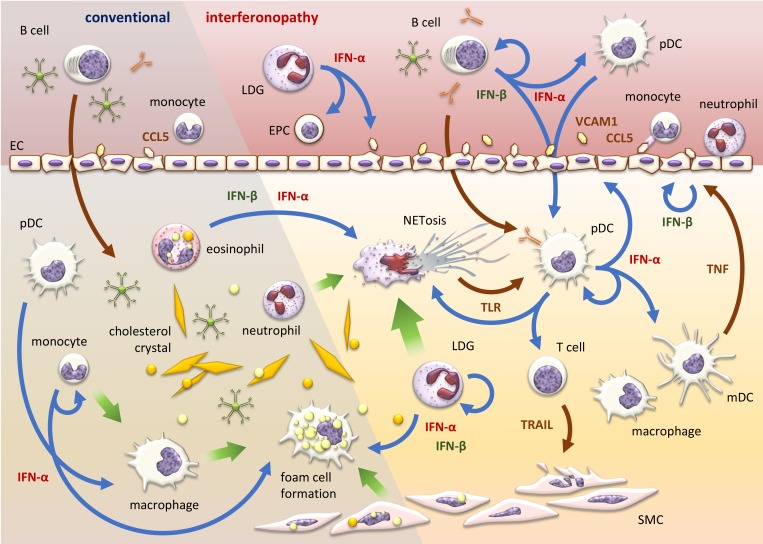Figure 2.
Type-I IFNs affect atherosclerosis. Type-I IFNs can be produced by monocytes, macrophages, pDCs, eosinophils, and B cells and LDGs in autoimmune patients. Locally and systemically elevated type-I IFNs result in increased foam cell formation, EC dysfunction, suppressed EPC maturation, enhanced NETosis, increased monocyte and neutrophil recruitment, and elevated immune cell activation. IFN-stimulated T cells exert stronger cytotoxic function to SMC via TRAIL. Myeloid APCs including macrophages and mDCs secrete higher levels of TNF, leading to IFN-β expression in ECs. Type-I IFN priming of IFN-producing cells such as pDCs, monocytes, B cells, ECs, and LDGs results in an autocrine feedback loop that exacerbates the pro-inflammatory microenvironment.

